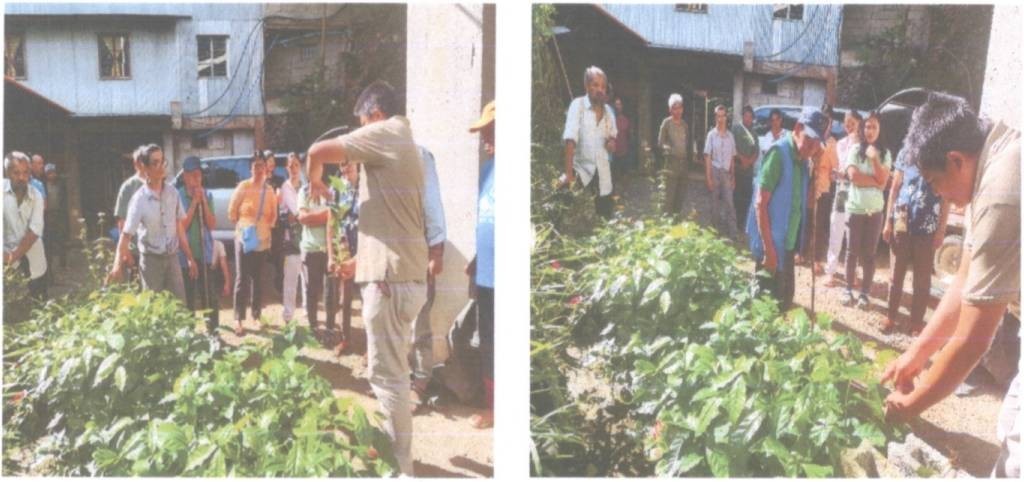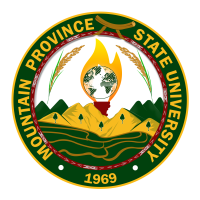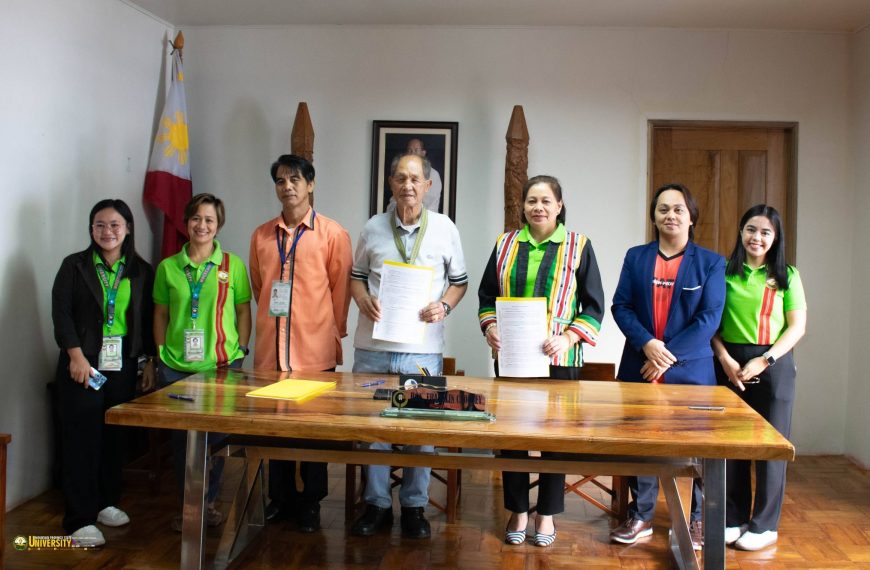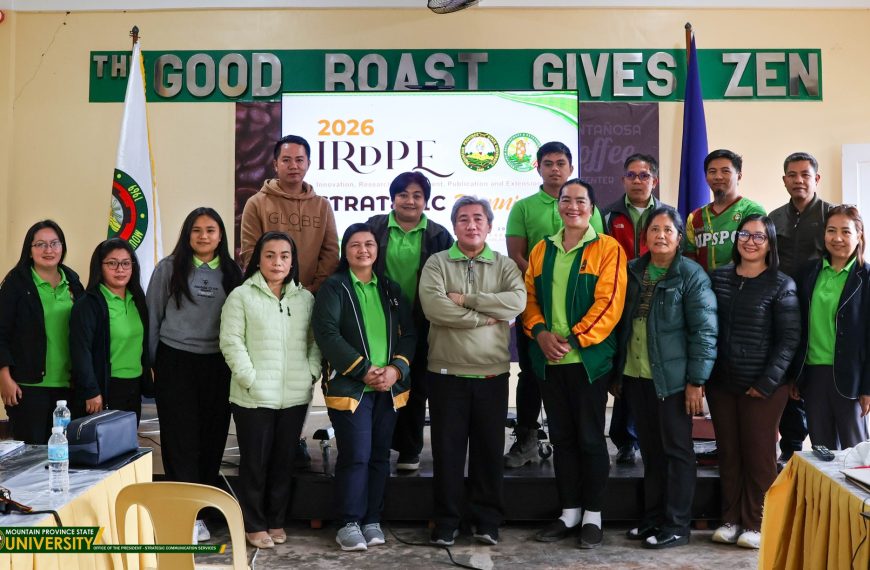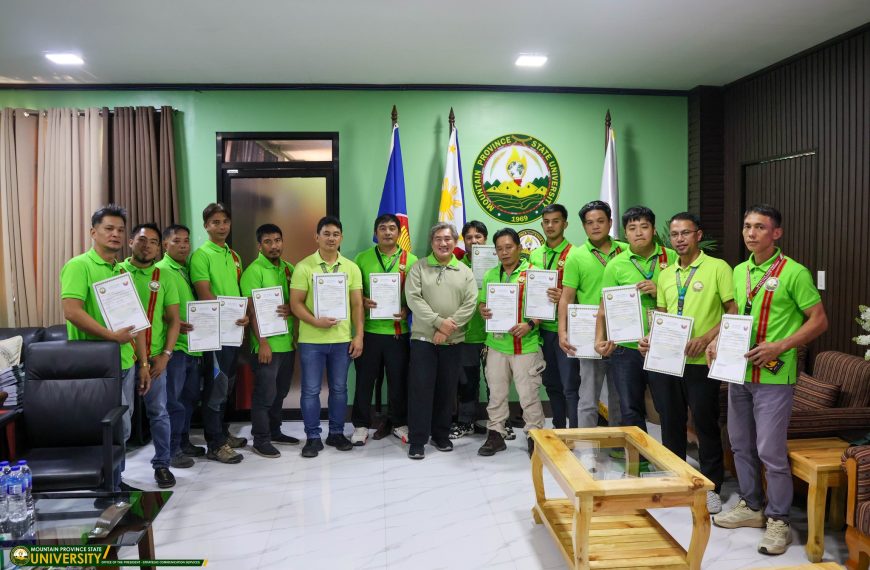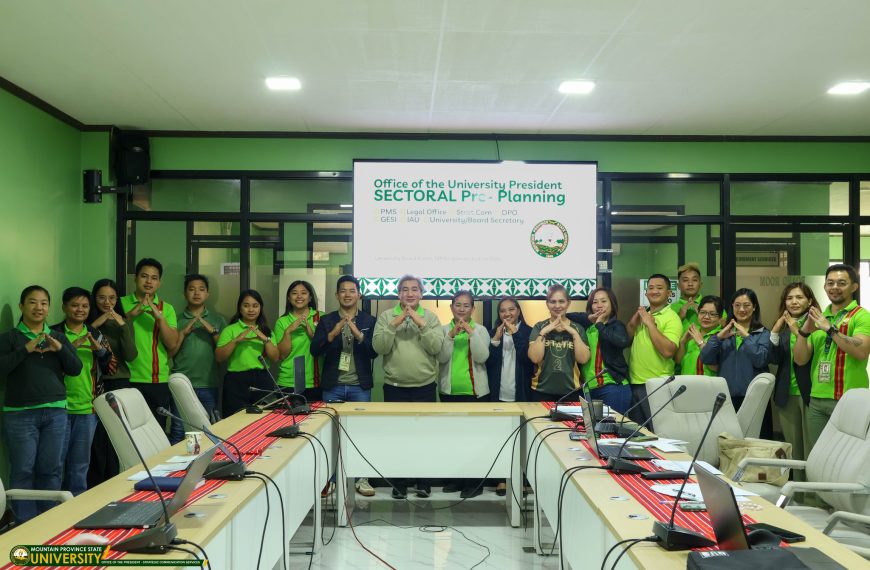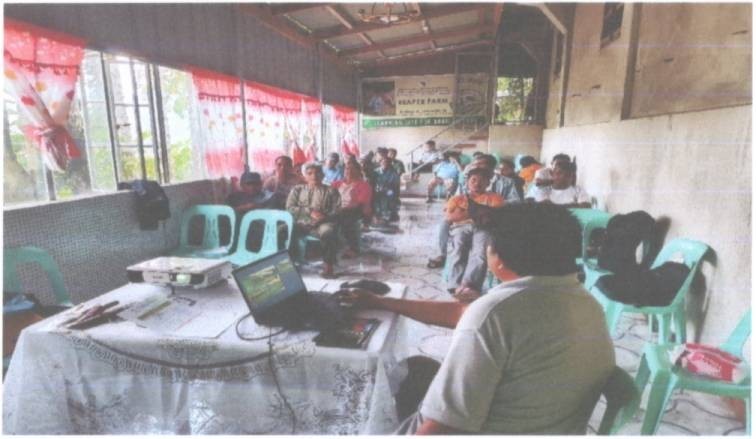
To strengthen the adaptive capacity of local farmers to climate-related challenges and promote sustainable livelihood practices, the Mountain Province State University (MPSU), through the Montañosa Coffee Center (MCC), conducted a Technical Training on Coffee Production and Plantation Management in Kadaclan, Barlig.
This two-day community education programme was organized in partnership with the Department of Agriculture Regional Field Office – Cordillera Administrative Region (DA-RFO-CAR) and supported by MPSU’s Extension Fund, aligning directly with Sustainable Development Goal 13 – Climate Action.
The activity aimed to enhance farmers’ knowledge on climate-resilient coffee cultivation, improve production efficiency, and promote sustainable land-management practices. Mr. Domingo L. Lawagey, Director of the Montañosa Coffee Center, served as the resource speaker, joined by Ms. Joveliza L. Galsi, Extension Staff of MPSU.
Thirty-one (31) participants—composed of members of community-based people’s organizations (KIPO-Kaleo, KIPO-Banao, KIPO-Chupac, KIPO-Lunas, KIPO-Ikacharan, and KIPO-Kadaclan)—took part in the training. The event was opened by Barangay Chairman Fritz T. Changilan, followed by a message of support from Mr. Pedro C. Pinossan of the Municipal Agriculture Office-Barlig, who expressed gratitude to MPSU for responding to the municipality’s call for technical training to enhance coffee production and sustainability.
The first-day sessions introduced climate-adaptive agronomic practices such as seedling propagation, land preparation, fertilizer application, and rejuvenation of aging coffee trees. These techniques are vital for sustaining productivity amid erratic rainfall and rising temperatures.
On the second day, participants visited the demonstration farm of Mr. Ashley Lamaton, a local farmer practicing natural and sustainable farming methods. The hands-on session featured proper soil-media formulation for seedlings, identification of Arabica and Robusta varieties suited to high-elevation conditions, and demonstration of pruning, rejuvenation, and coffee-berry harvesting. These field demonstrations reinforced impact-reduction and adaptation practices essential for resilient coffee production systems.
An open forum concluded the training, providing a platform for participants to clarify and contextualize the new techniques. The Municipal Agriculture Office representatives and people’s organizations acknowledged that MPSU’s technical assistance bridges research and community learning—enhancing both productivity and resilience of highland coffee growers.
This initiative exemplifies MPSU’s continuing effort to deliver localized education on climate change adaptation and mitigation, particularly in the agricultural sector that sustains upland livelihoods. By providing technical and science-based guidance to community farmers, MPSU strengthens grassroots understanding of how sustainable coffee cultivation contributes to climate-impact reduction, biodiversity protection, and resilient livelihoods across the Mountain Province.
#MPSUClimateAction
#SDG13
#MontañosaCoffee
#ClimateSmartFarming
#SustainableHighlands
#MPSUExtension
#CoffeeForClimateResilience
